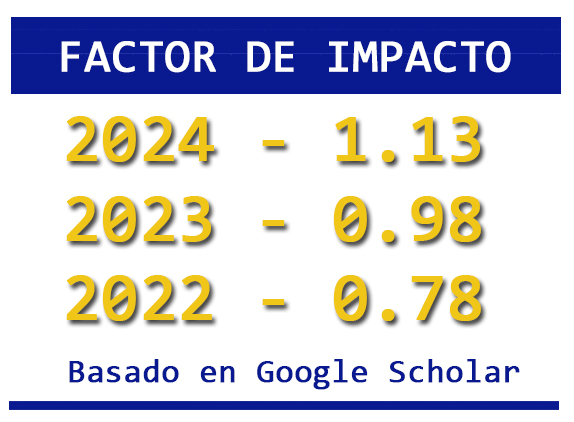Recovery Alternatives for Used Lubricating Oils
DOI:
https://doi.org/10.36790/epistemus.v16i32.222Keywords:
Used lubricating oil, Recovery alternatives, Production processesAbstract
Used lubricating oil is a valuable resource, in its original and residual form, for this reason some methods for its recovery based on its life cycle were identified as alternatives for its management through management schemes that consider technological and treatment aspects, for the recovery of the base material and its possible reintegration into the production processes as alternative fuel or as base oil, thus contributing to achieving sustainable management of this waste material, avoiding thus possible sources of environmental contamination and risks to human health.
Downloads
References
L.A. Manzanarez-Jiménez, «Modelo para reciclado de aceite lubricante usado basado en la NAV-ALU y técnicas de manufactura esbelta,» Revista Multidisciplinaria de Avances de Investigación , vol. 3, nº 2, pp. 11-24, 2017.
EPA, «Managing, Reusing, and Recycling Used Oil» 12 agosto 2021. [En línea]. Available: https://www.epa.gov/recycle/managing-reusing-and-recycling-used-oil. [Último acceso: 15 noviembre 2021].
OEC, «Aceites crudos de petróleo o de mineral butiminoso» 2 Dicicembre 2020. [En línea]. Available: https://pro.oec.world/es/profile/hs92/crude-petroleum. [Último acceso: 22 marzo 2022].
A. Z. Syahir, N. W. W. Zulkifli, H. .. Masjuki, M. A. Kalam, A. Alabdulkarem, M. Gulzar, L. S. Khuong y M. H. Harith, «A review on bio-based lubricants and their applications,» Journal of Cleaner Production, vol. 168, nº 1, pp. 997-1016, 2017. DOI: https://doi.org/10.1016/j.jclepro.2017.09.106
G. F. Dalla, O. Khlebinska, A. Ladolo y S. Miertus, «Compendium of used oil regeneration tecnologies, International Centre for Science and High Technolgy,» 6 enero 2003. [En línea]. Available: www.unido.org. [Último acceso: febrero 2022].
A. Wolak, G. Zając y W. Gołębiowski, «. Determination of the content of metals in used lubricating oils using AAS 37, 102 - 93.,» Petroleum Science and Technology, vol. 37, pp. 93-103, 2019. DOI: https://doi.org/10.1080/10916466.2018.1511584
K. Pramanik, «Properties and use of jatropha curcas oil and diesel fuel blends in compression ignition engine,» Renewable Energy, vol. 28, nº 2, pp. 239-248, 2003. DOI: https://doi.org/10.1016/S0960-1481(02)00027-7
T. F. Guerin, «Environmental liability and life-cycle management of used lubricating oils,» Journal of Hazardous Materials, vol. 160, nº 2-3, pp. 256-264, 2008. DOI: https://doi.org/10.1016/j.jhazmat.2008.03.029
Z. Pawlak, W. Urbaniak, T. Kaldonsky y M. Styp-Rekowski, «Energy conservation through recycling of used oil,» Ecological Engineering, vol. 36, nº 12, pp. 1761-1764, 2010. DOI: https://doi.org/10.1016/j.ecoleng.2010.08.007
A. Sınağ, S. Gülbay, B. Uskan, S. Uçar y S. BilgeÖzgürle, «Production and characterization of pyrolytic oils by pyrolysis of waste machinery oil,» Journal of Hazardous Materials, vol. 173, nº 1-3, pp. 420-426, 2010. DOI: https://doi.org/10.1016/j.jhazmat.2009.08.100
L.A. Manzanarez-Jiménez, Manejo de aceite lubricante usado en motores de combustión interna en el municipio de Ahome, Sinaloa, Ciudad de México: Tesis de Maestrìa del Instituto Politécnico Nacional, 2016.
R. Geyer, B. Kuczenski, A. Henderson y T. Zink, «Life Cycle Assessment of Used Oil Management in California Pursuant to Senate Bill 546 (Lowenthal),» 2013. [En línea]. Available: https://www.researchgate.net/publication/260338228_Life_Cycle_Assessment_of_Used_Oil_Management_in_California_Pursuant_to_Senate_Bill_546_Lowenthal. [Último acceso: 17 noviembre 2021].
S. Kannan, K. Mohan, S. M. Hussain, P. M. Deepa y S. K, «Studies on reuse of re-refined used automotive lubricating oil,» Research Journal of Engineering Sciences, vol. 3, nº 6, pp. 8-14, 2014.
E. Granados-Hernández, Bravo-Álvarez, H, X. López-Andrade y R. Sosa-Echeverría, «Petroleum Refining and its Economic and Technological Impact,» Ingeniería Investigación y Tecnología , vol. XIV, nº 4, pp. 475-487, 2013.
B. Boughton y A. Horvath, «Environmental assessment of used oil management methods,» Environmental science & technology, vol. 38, nº 2, pp. 353-358, 2004. DOI: https://doi.org/10.1021/es034236p
H. Nixon y J.-D. Shapores, «Used oil policies to protect the environment: an overview of Canidian experiences,» 2003. [En línea]. [Último acceso: 6 noviembre 2021]. DOI: https://doi.org/10.1061/40630(255)11
C. Seyler, T. B. Hofstetter y K. Hungerbùhler, «Life cycle inventory for thermal treatment of waste solvent from chemical industry: a multi-input allocation model,» Journal of Cleaner Production, vol. 13, nº 13-14, pp. 1211-1224, 2005. DOI: https://doi.org/10.1016/j.jclepro.2005.05.009
K. Chari, «United Nations Environment Programme,» 2012. [En línea]. Available: https://www.unep.org/resources/report/compendium-recycling-and-destruction-technologies-waste-oils. [Último acceso: 15 octubre 2021].
W. Forester, «Technical guidelines on used oil re-refining of other re-uses of previously used oil,» 2002. [En línea]. Available: www.basel.int › Portals › 4. [Último acceso: octubre17 2021].
T. Swarr, D. Hunkeler, W. Klöpffer, H. Pesonen, A. Ciroth, A. Brent y R. Pagan, «Environmental life-cycle costing: a code of practice,» Int J Life Cycle Assess, vol. 16, pp. 389-391, 2011. DOI: https://doi.org/10.1007/s11367-011-0287-5
A. A. Durrani, M. I. Panhwar y R. A. Kazi, «Re-refining of waste lubricating oil by solvent extraction,» Journal of Engineering and Tecnology, vol. 30, nº 2, pp. 237-246, 2011.
D. Baderna, E. Boriani, F. Giovanna y B. E, «Lubricants and Additives: A Point of View,» de Global Risk-Based Management of Chemical Additives I. The Handbook of Environmental Chemistry, Springer, Berlin, Heidelberg, 2011, pp. 109-132. DOI: https://doi.org/10.1007/698_2011_99
Y.-L. Hsu y L. Chun-Chu, «Evaluation and selection of regeneration of waste lubricating oil technology,» Environ Monit Assess, vol. 212, nº 1-4, pp. 176-197, 2011. DOI: https://doi.org/10.1007/s10661-010-1576-3
M. Fatemeh Amir Aslanzadeh, S. Amin y S. Shiva, «Pilot plant study for management of toxic solid waste collected in landfill,» Process Safety and Environmental Protection, vol. 159, pp. 500-510, 2022. DOI: https://doi.org/10.1016/j.psep.2022.01.025
P. Nowak, K. Kucharska y M. Kaminski, «Ecological and Health Effects of Lubricant Oils,» International Journal Environmental Research Public Health, vol. 16, nº 16 , pp. 1-13, 2019. DOI: https://doi.org/10.3390/ijerph16163002
A. Ewetola E, «Effect of Crude Oil Pollution on some Soil Physical Properties,» IOSR Journal of Agriculture and Veterinary Science, vol. 6, nº 3, pp. 14-17, 2013. DOI: https://doi.org/10.9790/2380-0631417
E. Emam y A. Shoaib, «Re-refining of Used Lube Oil, II- by Solvent/Clay and Acid/Clay-Percolation Processes,» ARPN Journal Science and Tecnology, vol. 55, nº 13, pp. 179-187, 2013.
S. F. Hamilton y D. L. Sunding, «Optimal recycling policy for used lubricating oil: the case of California’s used oil management policy,» Environ Resource Econ, vol. 62, nº 1, pp. 3-17, 2015. DOI: https://doi.org/10.1007/s10640-014-9812-x
N. M. Abdel-Jabbar, E. A. Al Zubaidy y M. Mehrvar, «Waste lubricating oil tretment by adsortion process using different adsorbents,» International Journal of Chemical and Biological Engineering, vol. 4, nº 2, pp. 70-73, 2010.
Swedish Institute for Standards, «Environmental management - Life cycle assessment - Principles and framework - Amendment 1 (ISO 14040:2006/Amd 1:2020),» 2020. [En línea]. Available: https://maconomyportal.sis. [Último acceso: 16 octubre 2021].
Downloads
Published
How to Cite
Issue
Section
License
Copyright (c) 2022 EPISTEMUS

This work is licensed under a Creative Commons Attribution-NonCommercial-ShareAlike 4.0 International License.
The magazine acquires the patrimonial rights of the articles only for diffusion without any purpose of profit, without diminishing the own rights of authorship.
The authors are the legitimate owners of the intellectual property rights of their respective articles, and in such quality, by sending their texts they express their desire to collaborate with the Epistemus Magazine, published biannually by the University of Sonora.
Therefore, freely, voluntarily and free of charge, once accepted the article for publication, they give their rights to the University of Sonora for the University of Sonora to edit, publish, distribute and make available through intranets, Internet or CD said work, without any limitation of form or time, as long as it is non-profit and with the express obligation to respect and mention the credit that corresponds to the authors in any use that is made of it.
It is understood that this authorization is not an assignment or transmission of any of your economic rights in favor of the said institution. The University of Sonora guarantees the right to reproduce the contribution by any means in which you are the author, subject to the credit being granted corresponding to the original publication of the contribution in Epistemus.
Unless otherwise indicated, all the contents of the electronic edition are distributed under a license for use and Creative Commons — Attribution-NonCommercial-ShareAlike 4.0 International — (CC BY-NC-SA 4.0) You can consult here the informative version and the legal text of the license. This circumstance must be expressly stated in this way when necessary.
The names and email addresses entered in this journal will be used exclusively for the purposes established in it and will not be provided to third parties or for their use for other purposes.
























